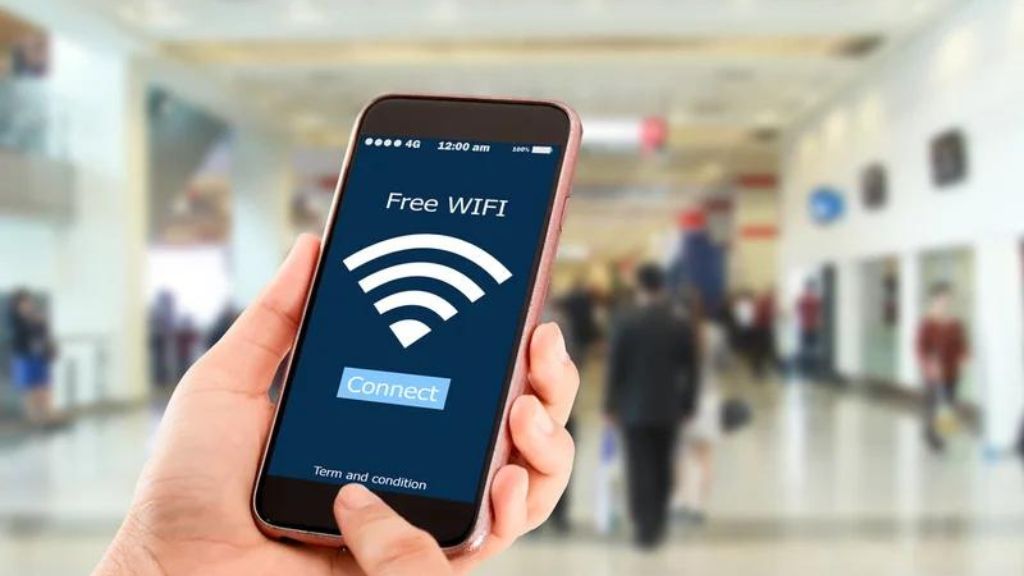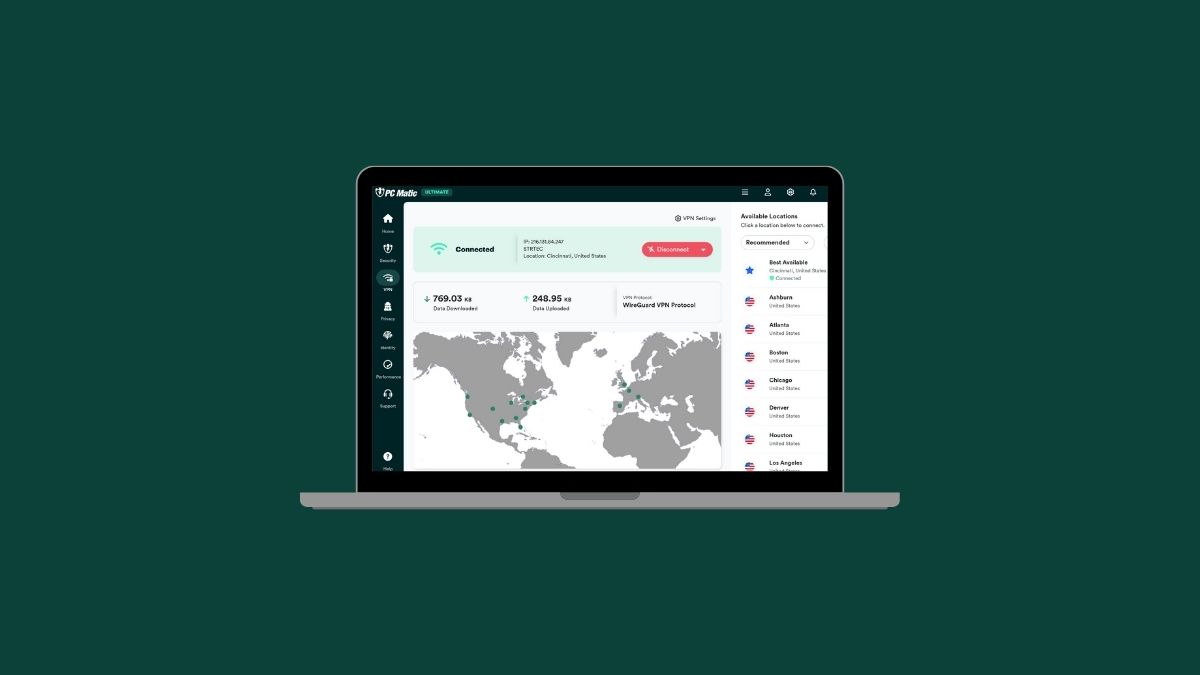Travelers have long been warned about the dangers of public Wi-Fi in airports, coffee shops, and hotels. Despite these warnings, the temptation to connect remains strong, especially for those in transit, eager to catch up on emails or check in with loved ones. Unfortunately, public Wi-Fi networks, particularly at airports, are prime targets for hackers who exploit weak security measures to carry out sophisticated attacks, like the infamous “evil twin” attack.
How Do Evil Twin Attacks Work?
An evil twin Wi-Fi attack occurs when a hacker sets up a fake Wi-Fi access point that appears identical to a legitimate one. Unsuspecting users connect to this rogue access point, thinking they’re using a safe network, but in reality, they’re exposing their sensitive information to the hacker. This type of man-in-the-middle (MITM) attack is where the cybercriminal intercepts communication between the user and the intended server, often stealing login credentials, personal data, and even access to bank accounts.
For example, an Australian hacker was recently arrested for setting up evil twin access points on domestic flights and airports to steal authentication details like email and social media credentials. This incident highlighted how easy it is for cybercriminals to exploit the vulnerabilities of unsecured networks, especially in busy public places.
Why Hackers Love Airport Wi-Fi
Airports are bustling hubs with thousands of travelers, most of whom connect to free Wi-Fi hotspots for convenience. Unfortunately, this expectation makes it easier for hackers to execute evil twin attacks by creating a fake Wi-Fi access point with a spoofed network name (SSID) that mimics the real one. In many cases, the hacker will offer a stronger signal than the real Wi-Fi access point, further enticing users to connect.
The problem is compounded because third-party providers often manage airport Wi-Fi networks. For instance, Dallas Fort Worth International Airport’s Wi-Fi is by Boingo, which means the airport’s IT team has limited control over the network traffic or security protocols. This hands-off approach makes airports a prime target for cyber threats, including ransomware attacks, phishing schemes, and data breaches.
How to Avoid Becoming a Victim
Experts recommend avoiding unsecured networks and using alternatives to protect yourself from fake Wi-Fi networks. One effective solution is to use your phone’s hotspot. This creates a secure connection with a strong, private password.
If a personal hotspot isn’t feasible, you should always connect through a VPN (Virtual Private Network) like PC Matic VPN. A VPN encrypts your network traffic, ensuring that even if a hacker manages to intercept your data, they won’t be able to read it. Additionally, a VPN can help mask your location by hiding your IP address.
How PC Matic VPN Protects You on Public Wi-Fi
Using PC Matic VPN can greatly enhance your Wi-Fi security, especially when connected to potentially rogue access points. Here’s how it protects you:
1 – Encryption of Network Traffic:
PC Matic VPN encrypts all the data you send and receive, preventing cybercriminals from accessing your information. Your connection will be secure in public spaces.
2 – Hides Your Identity:
By masking your IP address, PC Matic VPN makes it much harder for hackers to track your activities, reducing the risk of identity theft or phishing attempts.
3 – Protection Against Evil Twin Networks:
PC Matic VPN will protect your data with strong encryption even if you accidentally connect to an evil twin access point. The hacker may see that you’re connected, but they won’t be able to exploit your sensitive data.
4 – Wi-Fi Security on the Go:
PC Matic VPN is designed for travelers. Whether at the airport, on a flight, or working from a café, you can browse securely knowing that your information is safe from evil twin attacks and other cyber threats.
5 – Prevent Social Engineering and Phishing:
PC Matic VPN can block attempts to redirect you to fake captive portals and phishing sites by encrypting your communication with legitimate servers, ensuring that the websites you visit are authentic.
Why Public Wi-Fi is Risky Business
One of the primary reasons public Wi-Fi networks are so vulnerable is the lack of encryption. Many free networks, especially in airports, offer little to no encryption, making it easy for hackers to intercept your data. Even worse, users often connect to these networks without giving a second thought to the security risks.
Brian Alcorn a Cincinnati-based IT consultant, points out, “Once you’ve entered your information, the deed is done.” Hackers only need you to type in your login credentials once, and they’ve got the keys to your online identity.
Cybercriminals don’t need advanced skills or high-tech equipment to pull off these attacks. A determined hacker with less than $500 worth of equipment can create a rogue Wi-Fi network capable of stealing your data in minutes.
Best Practices for Securing Your Wi-Fi Connection
Aside from using a VPN, there are additional steps you can take to reduce your risk of falling victim to an evil twin Wi-Fi attack:
1 – Disable Auto-Connect:
Many devices are set to connect automatically to wireless networks they’ve used before. This makes it easier for hackers to trick your device into joining their evil twin network. Disable this feature to ensure you’re always aware of the networks you connect to.
2 – Use Strong Passwords and Two-Factor Authentication:
Two-factor authentication (2FA) adds extra security to your accounts. Even if a hacker steals your login credentials, they won’t be able to access your accounts without the second verification step.
3 – Check the SSID:
Always double-check the network name (SSID) before connecting. Hackers often use similar names to the legitimate network to trick you into joining their rogue access point.
4 – Avoid Sharing Sensitive Information:
Avoid accessing sensitive sites like online banking or emailing personal data. Even if you’re using a VPN, exposing your most important information is safer to avoid.
Take Control of Your Cybersecurity with PC Matic VPN
Public Wi-Fi networks, especially in public places like airports, remain a hotspot for cyber threats such as evil twin attacks, man-in-the-middle attacks, and social engineering schemes. With PC Matic VPN, you can protect your data, encrypt your communication, and browse securely no matter where you are.
Cybercriminals continue to evolve, using more sophisticated tactics like spoofing legitimate Wi-Fi networks, creating fake captive portals, and deploying malware through unsuspecting users. You can stay one step ahead, ensuring your information is private and secure.
Conclusion
Public Wi-Fi networks, especially at airports, are hotbeds for cyberattacks like evil twins and man-in-the-middle schemes. With PC Matic VPN, you can safeguard your data, encrypt your online activity, and browse confidently. Don’t take chances with your cybersecurity — protect yourself with PC Matic VPN, the best defense against the growing threat of public Wi-Fi attacks.




